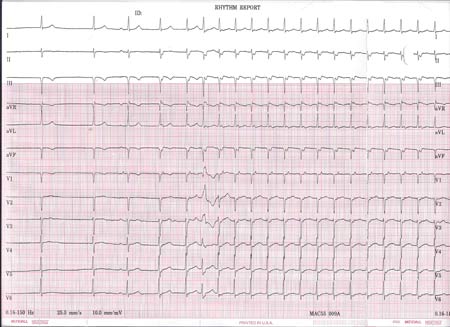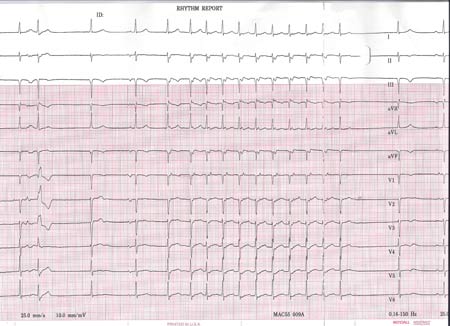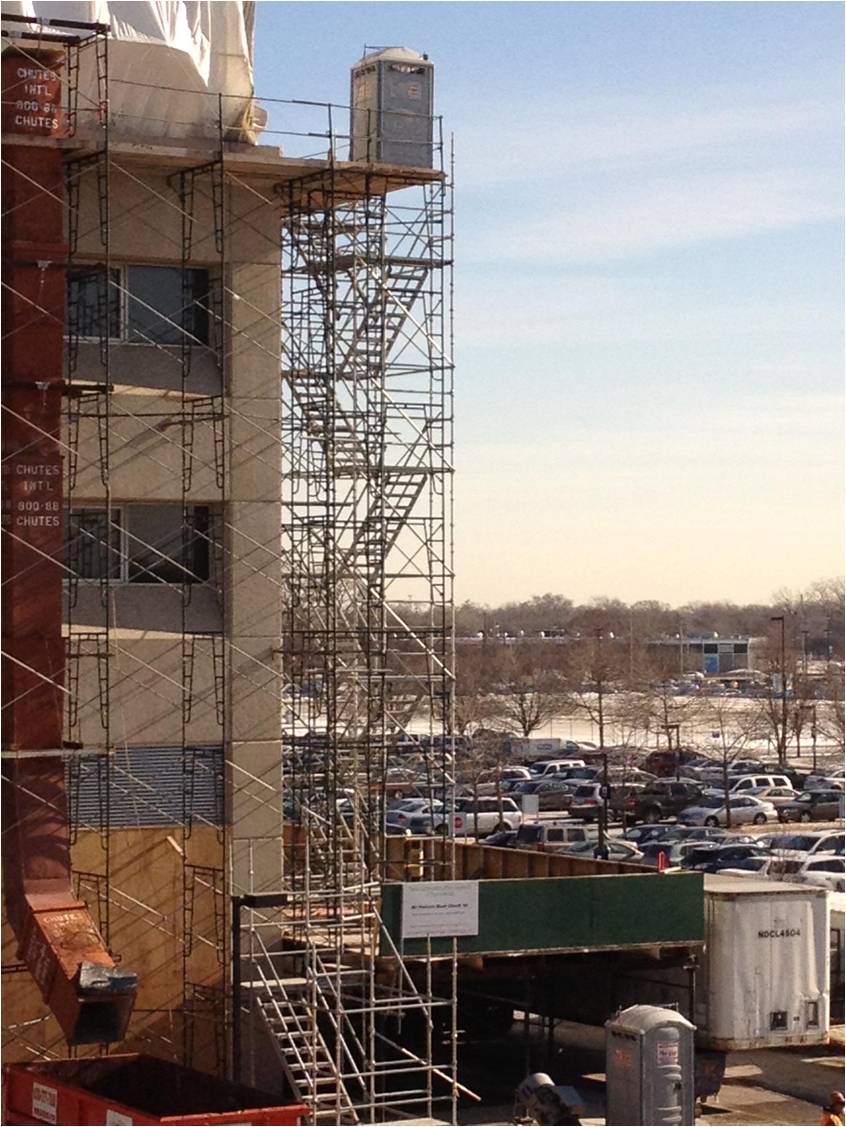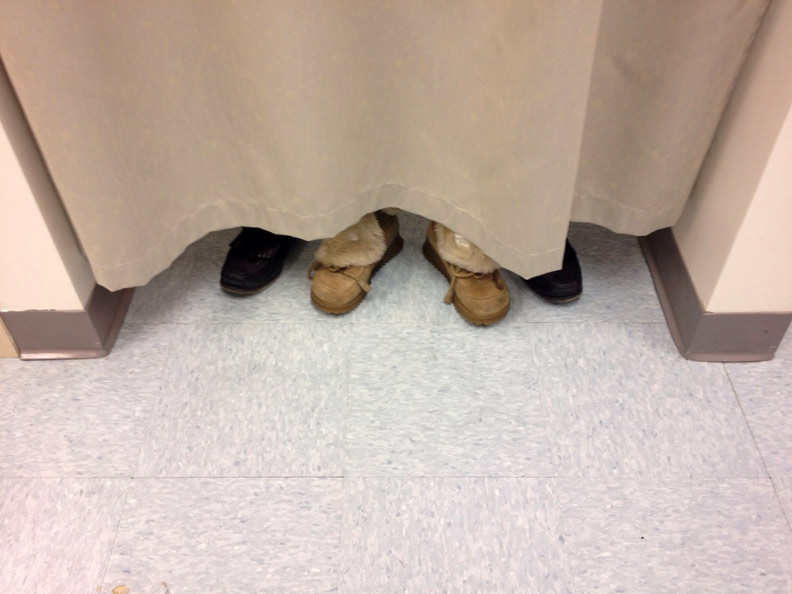With the preponderance of optimistic takes on physicians
participating (some even suggesting we have an
obligation to participate) in various forms of social media through blogging, Twitter-ing, and Facebook-ing, perhaps one of us should take a moment to acknowledge that there are some downsides to this practice for doctors and nurses. Increasingly, I have been thinking a lot about this topic and how to explain it without sounding like "
Debbie Downer."
As my perspective has matured in the blog-o-sphere, I have had several insights that have tempered by unabashed enthusiasm for social media. Perhaps it would be helpful to share those to keep the discussion real for doctors considering a dive into this space.
Blogging, unlike diamonds, really is forever
Even if you try to delete a single published post or an entire blog, it's tough to delete all the references to the work that have been reprinted, reformatted or placed in an archived cache online. Further, the
anatomy of a single tweet exposes us to the reality of the internet: much more is contained in any post or tweet besides its content - like time, computer type, location. Just as important: you are writing in pen (make that a an indelible marker!), not pencil, when your publish a thought on a social media platform. While this might be a good thing for many, the potential to take prose out of context (sarcastic or not) could have significant legal ramifications for those involved in the care of patients. In my six+ years of writing, I often think about this and wonder if the benefits I have garnered by sharing my insights could be rendered mute by a single legal reference to this blog.
You never hear the bullet that hits you
Way back in October, 2007, Allen Roberts, MD (an ER doctor of
Gruntdoc fame) sent me an application that he had received for obtaining "board certification" in Cardiology from an unknown entity calling itself the "American Academy of Cardiology." All he had to do was complete the form, send in $300, and send the money to receive a "board certificate" in cardiology. Allen asked me in his e-mail: "Want to do anything with this?"
Well of course I did! I was the citizen journalist who could end this practice, right?
I researched the organization, the name of the individual, googled the website and its possible sponsor, and quickly realized this was a money-making scam.
So I wrote a
post - a very satirical post - but still couldn't conclusively identify the individual responsible for the scam. Remarkably, the first anonymous commenter on my blog post identified this individual by name. Other comments followed with links to other not-so-great untoward activities by this individual. In the interest of full disclosure, I permitted those comments to be published. I felt I did my job and laid the topic to rest.
In June, 2008, while seeing patients in clinic, my front desk clerk handed me a large envelope containing a subpoena and cover letter insisting I appear the following day for questioning at a local lawyer's office. Further, the cover letter insisted I remove the blog post I published on this board certification matter as well as the picture of the fraternity paddle I had emblazoned with the words "American Board of Cardiology." Without going into all of the details, as you can see, the post and picture still stands. But not before my lawyer made three trips to court and I accrued almost $14,000 in legal fees.
Did I win?
I suppose for patients and gullible doctors who might be scammed into purchasing these fake board certifications, I did. But when I consider the costs of the legal haggling coupled with the months of worry for myself and my family, I'm really not so sure. I still wonder why I continued blogging. Perhaps it was to show my "strength." Perhaps because I didn't like to "lose" the right to stand up for what I believed. Whatever it was, I quickly grew up as a physician blogger. I pause every time I'm about to post. From that lesson it became abundantly clear to me: blogging, no matter how careful I tried to be, was clearly not a legally risk-free endeavor.
I also grew to appreciate the power of social media for my patients and colleagues. On occassion when discussing sensitive subjects, the truth can hurt those exposed. But people who decide to attack bloggers who tell the truth risk being even more exposed themselves (this phenomenon has been dubbed "
The Streisand Effect.") That's because most bloggers to their homework and are careful to obtain background documents or refer clinical references to support their commentary. Most of all, good bloggers consider their words carefully and know when NOT to publish as well. So if you're going to do this social media thing seriously, realize it does have risks that you might not suspect associated with it. In this regard, it is good to review information offered by the
Electronic Frontier Foundation. They have many helpful legal resources for bloggers there, new or old.
Gag Orders
Increasingly, doctors find that they no longer serve just their patients, but because more and more of them are becoming employees, they must serve their employers, too. Because of this new role, there exists a potential for conflicts for doctors between the needs of their patient and the needs of their employer. Although rare, an unhappy doctor could upset the careful balance between care delivery and business policies. Therefore, administrators are careful to protect their corporate policies and procedures. The make sure to place the onus of responsibility for participating in social media squarely on the participant's shoulders. Health care institutions commonly place doctors under restrictive
social media policies that ban them from talking about business practices, contracts in place with vendors, and the like.
Can doctors still participate in social media in that setting? Of course! But commentary will be necessarily geared toward the sanitized and polite (some call this "professionalism"). And while I still meet doctors hungry for honest discussions about thorny issues that affect them directly, I have to be very careful what I include on this blog. Each of us must respect the fact that being too forthright could cost us our jobs. In some ways for patients, this is too bad, since honest discussions are potentially "filtered."
While doctors are partially muzzled online by these policies, patients are becoming increasingly vocal. As such, it will be the patients, perhaps in subliminal collaboration with their doctors, that will drive our health care system to improve. Social media is becoming a very effective way for patients to voice their concerns to others, and health care systems of tomorrow are launching their own social media campaigns to counter the potential for those patient concerns to be amplified many times over by others. And for this reason, maybe some of these downsides of social media for doctors will be outweighed by social media's benefits to our patients. Better yet: social media-savvy doctors might become the best voice of reason to address new patient concerns that arise.
Time
This is the Granddaddy downside for doctors of them all. Culling news stories or scientific articles, reflecting on your own personal experiences, placing pen (or fingertips) to paper (or computer), spell-checking (it happens sometimes) and processing feedback are prerequisites for a good physician or nurse blog. Even doctors NOT participating actively on social media are increasingly interrupted by the push of information to their smart phones, be it in the mall or in hospital hall. Surely, I'm not sure the last time I didn't run into someone checking their cellphone. Trendy journalists, ever eager to slam our profession, coin new terms for this phenomenon:
distracted doctoring. (Never mind that the journalist has Tweetdeck open on his own computer as he writes his prose and receives his newsfeeds while driving). * sigh *
But we should acknowledge the seductive nature of social media. It is rewarding to post something on line that people can positively acknowledge. There is also an element of mystery and intrigue: who's reading and commenting? Where do they come from? Do they like what I have to say or are they critical? Sadly, bloggers can find out fairly easily. They just set up a little Sitemeter account and they gain the ability to see where and when readers come from. So the statistics are checked again and again - link backs explored - and time is frittered away. Bloggers wanting to grow their readership rationalize this "checking" as necessary. After all, it's all about generating "traffic," "stickiness," and "re-visits." Get enough of these and you can make a dollar from Google Adsense each day or promote your blog to advertisers through it's pageviews.
Sometimes, these time constraints can catch up to doctor bloggers. You simply can't write about everything that interests you on short order. Even if doctors understand this potential pitfall and limit their participation in social media to time only at home, the time required to participate can still intrude on one's personal or family life. After all, each of us are limited to only twenty-four hours in a day. To counter this, doctors should plan blog-breaks, sabbaticals, or even shutting things down temporarily or permanently. These breaks should not be seen as a sign of weakness (despite what happens to your Klout score or Technorati ranking) on the physician blogger's part, but rather, healthy insight into blogging's toll on life's other important priorities. For the reader of doctor blogs used to seeing instantaneous feedback from other non-medical social media sites, if a doctor doesn't respond to every comment within minutes, publish a post every day or even every week, then at least they'll understand where doctors are coming from.
This is not to say that doctors don't get things from participating in social media ourselves - we do. We learn from our patients. We learn from our colleagues. We develop a network where we bounce ideas off each other. We gain useful information quickly that we can apply to real-world problems. Beyond this, writing a blog can be therapy, a sounding board, or an information font. We can use social media in creative ways: for reference organization, to make considerable income, or maybe do it just because we like to write.
The Take-Home
So after all of this, what do I
really think about social media for doctors now?
I feel social media's benefits for doctors are probably net neutral: not awesome, not horrible.
It is what it is.
In our increasingly connected medical world, social media will be an asset for some, a liability for others. Where it settles out will be a personal choice. Social media doesn't make us a better doctor, it just makes us a better
public doctor that likes to write and type. It is not more than that. Doctors who have no typing skills can still have exceptional doctoring skills, but they'll probably never participate in social media and that's okay.
But there is one thing I know after all of this: whatever our new electronic medical world will become in the years ahead, social media use by our doctors of tomorrow sure
isn't likely to go away.
-Wes







